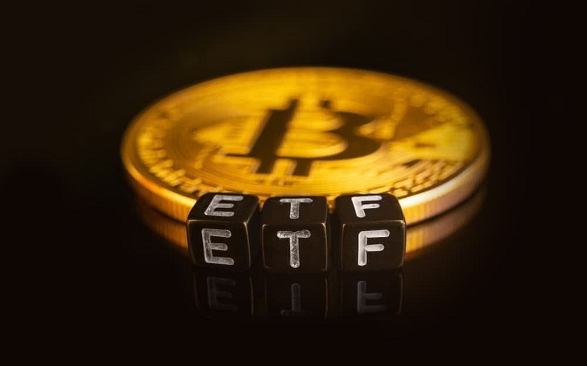Exchange-traded Funds, commonly known as ETFs, have become increasingly popular investment vehicles in the financial market. These well-known financial products provide investors with a flexible and regulated way to gain exposure to myriad assets without having to own them.
Typically, an ETF can have any financial asset, including commodities, stocks, and cryptocurrencies be its underlying asset. Available to be traded on regular stock exchanges, ETFs mirror the performance of specific underlying assets or financial products to give investors safe exposure.
Notably, crypto ETFs have been in the spotlight lately, with the SEC failing to approve several requests from prominent institutions to launch either the Bitcoin spot ETF or Bitcoin futures ETF. In light of these developments, it is pertinent to understand what these two Bitcoin ETFs represent and their disparities.
Read also: What is a cryptocurrency ETF?
Bitcoin ETFs Explained
A Bitcoin ETF is an investment fund or financial product that mirrors the performance of bitcoin (BTC). In other words, Bitcoin ETFs track the price of BTC and can be traded on stock exchanges along with other traditional financial assets.
It enables both traditional and individual investors to gain exposure to the biggest crypto by market cap without directly owning the actual asset. Bitcoin ETFs are the most popular crypto ETFs in the market followed by Ethereum ETFs. It operates similarly to company shares, trading on well-regulated platforms. This approach simplifies the investment process, eliminating the hassle of managing crypto wallets and other technical aspects.
Bitcoin ETFs hold either BTC or contracts linked to bitcoin price hence, classified into two categories namely — Bitcoin Futures ETF and Bitcoin Spot ETF. These ETFs are designed to meet different investment strategies and risk appetites.
Read also: Bitcoin surges as Grayscale wins legal battle against U.S SEC, paving way for possible ETF Launch.
Understanding Bitcoin Spot ETF
A Bitcoin spot ETF is an investment fund that directly holds and owns BTC. This ETF type is designed to track the spot price of Bitcoin. Practically, the fund buys bitcoins and offers them as shares on a stock exchange with the price of each share linked to the spot price of Bitcoin.
Therefore, when you invest in a Bitcoin spot ETF, you are purchasing shares in the fund, which in turn would hold Bitcoin in a secure custodial arrangement. The value of your ETF shares would be tied to the actual market price of Bitcoin.
While the BTC spot ETF encourages institutional adoption of crypto and presents a whole new market for investors, it has several limitations. The most notable is a high trading fee. It bears noting that the fund charges investors an additional fee for handling all technicalities and custodial services. Bitcoin spot ETF fees can be as high as 2.5%, while regular spot crypto trading fees are typically much lower.
Bitcoin Futures ETF Overview
A Bitcoin Futures ETF is a sort of exchange-traded fund that does not hold BTC. Instead, it is built on the Bitcoin futures contracts or derivatives. These contracts entail agreements to buy or sell bitcoin at a predetermined price on a specified future date.
Therefore, a Bitcoin spot ETF allows investors to bet on bitcoin’s future price without possessing the cryptoasset. Notably, this Bitcoin ETF type does not closely track the spot price of the leading crypto by market capitalization. However, it experiences significant price deviations from Bitcoin’s spot price.
Read also: BlackRock: Rocking the Crypto Market with Interest in Bitcoin ETFs
How Bitcoin Futures ETFs and Bitcoin Spot ETFs Differ
While both Bitcoin ETFs possess numerous similarities, they differ in many aspects including risks, exposure, performance drivers and underlying assets amongst others. Below of some of the core disparities:
- In terms of the underlying asset, Bitcoin spot ETFs hold actual BTC tokens. Meanwhile, the futures counterpart does not hold Bitcoins; instead, the fund is built on futures contracts or derivatives related to BTC.
- With Bitcoin spot ETFs, investors encounter direct exposure to bitcoin’s price fluctuations. On the other hand, investors in Bitcoin futures ETFs have indirect exposure to Bitcoin’s prices and risks.
- Whereas the risk associated with Bitcoin spot ETFs is tied primarily to the cryptoasset’s price volatility, futures ETFs can be influenced by both Bitcoin’s price fluctuations and futures market complexities.
- As per value, Bitcoin futures ETF often records significant price divergences from Bitcoin’s spot price. But spot ETFs mirror the real-time price of Bitcoin.
- It bears noting that Bitcoin spot ETFs may not trade frequently. However, Bitcoin futures ETF may trade frequently, rolling over contracts as they approach expiration.
Conclusion
Bitcoin ETFs have contributed significantly to the adoption of crypto as they enable institutional investors to step into the industry. Nonetheless, like any financial product, caution is essential when dealing with Bitcoin spots and futures ETFs as they pose numerous risks. In light of this, prospective and existing investors should always do proper research.
Read also: Top 6 Hacks on How To Avoid Losses in Crypto Trading
Credit: Ndianabasi Tom
A crypto journalist and content writer who has been talking about cryptocurrency and blockchain technology since 2018, Ndianabasi is a Writer at Crypto Asset Buyer (CAB).
Discover more from Crypto Asset Buyer
Subscribe to get the latest posts sent to your email.




